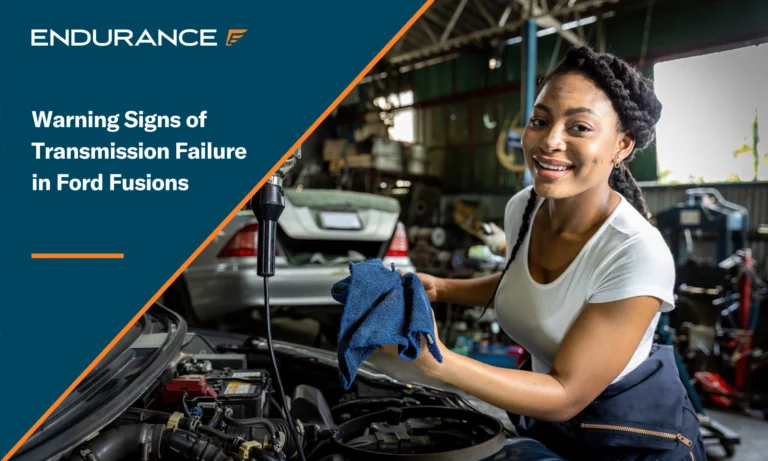Honda’s Reliability Revealed: What Makes Honda Cars Last So Long?

Starting as a small motorcycle company in post-war Japan, Honda has grown to become one of the world’s largest automakers. In 2022, the company sold more than four million automobiles globally. That’s a long way from when founder Soichiro Honda started attaching small engines to bicycles in 1948.a
Over the past 75 years, Honda Motor Company has developed a reputation for building some of the most reliable and long-lasting vehicles on the road. S&P Global reports that the average car in the U.S. is 12.5 years old. Yet, look at any major online marketplace, and you’ll find numerous Hondas for sale from the 1980s and 1990s – a testament to the durability and longevity of these cars.
So, what’s the secret to Honda’s success? We’ll uncover the answers as we took under the hood of the maker of the Accord, Civic, CR-V, and other popular Honda vehicles.
Engineering Excellence: The Core of Honda’s Longevity
Honda prides itself on its engineering prowess and technical expertise. Its research and development teams devote tremendous effort to understanding how each component interacts and finding ways to improve quality. By studying failure points and weaknesses, Honda can reinforce parts that are more prone to breakage.
Soichiro Honda summarized this focus: “Success can be achieved only through repeated failure and introspection. In fact, success represents 1 percent of your work which results only from the 99 percent that is called failure.”
The engines represent one area where Honda’s engineering shines. The company’s power plants are revered for their efficiency, performance, and, most importantly, reliability. Meticulous engineering contributes to increased compression ratios, improved combustion, and reduced friction. This helps the engines hold up exceptionally well over hundreds of thousands of miles.
“A company is most clearly defined not by its people or its history, but by its products,” remarked Soichiro Honda.
Innovative engine technologies like VTEC (Variable Valve Timing and Lift Electronic Control) demonstrate Honda pushing the envelope. VTEC, which dates back to the 1980s, provides efficiency and a high-RPM performance kick when needed. This technology was ahead of its time and gave Honda models an edge in reliability and driver experience. The company is now making greater use of turbocharging to maximize engine capability.
Design Innovations: Balancing Aesthetics and Durability
While great effort goes into the mechanical components, the company’s bodies and interiors reflect thoughtful design. Hondas tend to age gracefully because the company relies on an evolutionary rather than a revolutionary process.
The lines of a 2015 Honda Accord can be traced to a 1995 Accord. Some may criticize the automaker for not being a risk-taker, but its design approach explains why Honda’s styling holds up over decades of use.
Another case in point is the Honda S2000, a legendary roadster sold during the first decade of the 21st century. Its crisp looks are still relevant today and one of the reasons these cars are so highly coveted by collectors and Honda fans.
Ergonomics represents another design strength for Honda. Easy-to-read instrumentation, convenient controls, and supportive front seats make these cars comfortable and enjoyable for daily driving. Attention-to-detail elements like padded armrests and supportive headrests also contribute to an overall rewarding experience for drivers and passengers.
Clever conveniences also abound in Hondas, from the innovative Magic Slide second row of the Odyssey minivan to fold-flat rear seats in Honda Civic and Accord sedans. These smart touches help with versatility and promote years of practical use.
Quality Manufacturing Practices of Honda
Honda’s excellence goes beyond good design; it comes down to disciplined, meticulous manufacturing that ensures consistency and precision. Honda operates on the Japanese concept of monozukuri, which concentrates on flawless execution in development and production. It’s a practice employed by other home-country competitors, like Toyota.
Rigorous quality control checks occur throughout the assembly process to account for even the smallest defects. Hondas are tested thoroughly at the factory and at dealer preparation, where all functions are validated before customer delivery.
Precise quality control translates into real-world results. Not only does RepairPal give Honda a 4.0 reliability rating (out of 5.0), but the brand sits atop all other reviewed automakers for dependability. Marketplace iSeeCars.com gives Honda equally high marks, ranking the automaker number one in many “most reliable” categories, including small and midsize SUVs, midsize cars, and midsize trucks. The site rates the Ridgeline pickup, Accord sedan, and Honda Pilot SUV as the top three most reliable models of the brand.
Honda also cultivates strong, collaborative relationships with its parts suppliers, even honoring standout companies. By maintaining high supplier standards and working closely on new technologies, Honda ensures components like transmissions and electronics live up to the company’s reliability expectations. Smooth supply chain cooperation enables the final products to shine.
Honda’s Commitment to Engine Performance and Efficiency
While some mass-market brands focus mainly on affordability, Honda incorporates drivability into its product formula. Many of its cars have an engaging character that delivers more smiles per mile than competitors while keeping fuel efficiency in mind. For instance, the base version of the 2023 Honda Accord hits 60 mph from a standstill in 7.2 seconds. This isn’t the fastest car on the road, but this performance beats the Toyota Camry and Nissan Altima. Generations of Civics, Accords, and other Honda have set benchmarks in their classes for usable power from small but mighty engines.
As the automotive industry has embraced electrification, Honda has dedicated immense resources to hybrid and electric vehicles. In truth, the company gets credit for selling the first hybrid vehicle in the U.S. The Honda Insight beat the Toyota Prius to the market by a year.
More recently, Honda has shifted its attention to electric vehicles (EVs) with a two-pronged approach. It partnered with General Motors to jump-start the rollout of the company’s first purpose-built EVs, the Honda Prologue and Acura ZDX crossovers. At the same time, Honda is developing its own all-electric platform that will underpin its subsequent EVs.
Addressing Concerns: Has Honda’s Quality Declined?
While Honda is still a leading mass-market brand in quality studies, criticisms have emerged that Honda is not as bulletproof as it once was. What are buyers to make of these concerns about lower reliability?
It’s essential to put these worries in context. Industry-wide, cars have become much more complex than the Hondas that first established the brand’s rock-solid reputation. Features like infotainment systems, advanced safety aids, and connectivity services bring lots of complexity. More tech brings more possibilities for problems, so no car can ever be perfect.
However, as mentioned, Honda continues to get high reliability rankings. Its cars still demonstrate excellent mechanical durability even if more support for modern accessories introduces increased faults.
That said, let’s examine comments from Honda owners.
Honda Owners’ Feedback: Loyalty and Critiques
There are many forums for Honda owners, with Reddit being one of the most active. We searched “Honda quality” to see what Redditors say about this automaker and its cars.
Recent Reddit conversations reveal a complex and nuanced perspective on Honda’s product quality among owners and enthusiasts. While Honda built its reputation in America through the extreme durability of classics like the Civic CVCC and long-lasting vehicles from the 1990s and early 2000s, feedback indicates that quality control issues seem more prevalent in newer models.
“The older Hondas definitely lived up to the hype,” commented one Accord owner. “I had a ’97 CR-V that was stupid reliable, dependable, and cheap to maintain. But this recent 2019 Civic I purchased feels flimsy and I’ve already had problems with the electronics.” This sentiment of perceived declining quality was common, from frustrated posts about CVT “transmission failures before 100k miles” in 2018 Civics to detailed accounts of speaker issues, emission control defects, and battery problems by multiple Honda Odyssey owners.
However, Honda still earned praise at times for solid engineering. “This is my first Honda and I’m loving the build quality,” said a 2021 Accord owner. Another Redditor reflecting on a Honda CR-V test drive admitted, “Yeah I hear a lot about declining quality but they still have less issues reported than most brands.” There seems to be agreement Honda lags behind their past achievements, but its cars remain relatively reliable transportation.
One explanation for the perceived lapse is how rapid growth has pressured Honda to produce vehicles more quickly. “When you make cars nonstop to meet demand, something eventually suffers,” one mechanic commented, theorizing why fit-and-finish details like paint jobs and interior materials have declined. But optimists remain: “If you take care of them, Hondas still last. The competition has just caught up while they rested on their laurels.”
While opinions run the gamut from “stay away” to “still better than average,” most advise careful research and avoiding first-model-year purchases. One longtime Honda owner said, “Honda quality may be slipping from their peak but remains pretty good overall. I still feel comfortable recommending them to friends as practical and economical cars, but maybe not with quite as much confidence as I used to.”
The Impact of Regular Maintenance on Vehicle Longevity
While Honda’s design and construction quality enable longevity, proper maintenance also plays a key role. No vehicle, not even a Honda, will go forever without regular service.
Follow the recommended maintenance schedule that’s outlined in the owner’s manual. Oil changes, fluid and filter replacements, new spark plugs, and swapping other critical items prevent bigger issues down the road. These efforts also help resale value. With modern engines living longer than ever, today’s 200,000-mile Honda may need its timing belt replaced twice to reach that milestone. Keep an eye out for recalls or technical service bulletins, too.
However, given the reasonable cost of routine maintenance, not much investment is required to keep your Honda running smoothly for years to come. Take care of your Honda, and it will take care of you.
Taking Care of Your Honda with the Best Car Extended Warranty
While Hondas enjoy an enviable reputation for reliability, we’ve learned that no car is perfect. Add in that factory warranties don’t last forever, and a vehicle owner can face an uncertain future even with a new Honda. Yet, enjoying peace of mind is as simple as getting an extended car warranty (also called a vehicle service contract).
An Endurance extended warranty protects against breakdowns and surprise repair bills. With coverage ranging from a powertrain plan to an option similar to a new car warranty, there’s a choice for every owner.
All Endurance plan holders enjoy 24/7 roadside assistance (with towing coverage and lockout assistance), rental car reimbursement, and trip interruption coverage. There’s also a 30-day free-look period. If you’re dissatisfied with your coverage or the customer service we offer, you can cancel if you’re unsatisfied (see plan terms for full details). In addition, Endurance customers choose from any ASE Certified mechanic or shop for covered repairs.
Find out how an Endurance extended warranty makes car ownership easy. Call (800) 253-8203 to speak with an Endurance plan advisor, request a FREE online quote, or visit our online store. Read the Endurance blog for on-target articles covering DIY tips, car reviews, warranty advice, and more.
Honda FAQs
Why do Hondas last long?
Hondas last long for their engineering excellence, innovative designs focused on durability, stringent manufacturing quality controls, and commitment to engine performance and efficiency.
Will a Toyota or Honda last longer?
Both Toyota and Honda have solid reputations for the most reliable cars. Vehicles from both companies enjoy long lifespans, so there’s no clear winner. Regular maintenance and thoughtful driving are also significant contributors to vehicle lifespan.
Which Honda engine is most reliable?
Honda’s K-series of four-cylinder engines enjoy a reputation for performance, efficiency and durability. These powerplants are considered among the company’s most reliable engines and are sought after by the tuner crowd.
How does Honda compare to other automakers?
Honda continues to lead many automotive studies on reliability and durability, outranking most other brands. However, the gap has narrowed as competitors have caught up.













Since the age of 16, Keith has been immersed in the automotive industry, beginning his career by helping his dad fix vehicles at a young age. Keith now owns his own family-run, ASE Certified repair shop, A+ Autocare. At his shop, he focuses on building trusting relationships with his community through exceptional customer service. Read more about Keith.